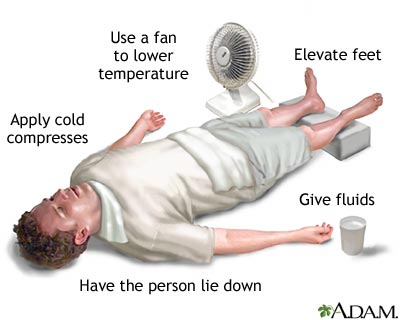Dehydration is a serious and potentially life-threatening condition that is caused by the lack of water needed for the body to function well. If  not treated, dehydration can cause high body temperature, sleepiness, visual snow, dizziness, unconsciousness, hypotension (decreased blood pressure), headaches, nausea, paresthesia (limbs tingling), shriveled and wrinkled skin, dim vision, incapability to urinate, delirium and possibly even death.
not treated, dehydration can cause high body temperature, sleepiness, visual snow, dizziness, unconsciousness, hypotension (decreased blood pressure), headaches, nausea, paresthesia (limbs tingling), shriveled and wrinkled skin, dim vision, incapability to urinate, delirium and possibly even death.
Preventing dehydration is pretty simple. If one regularly drinks eight to ten glasses of water everyday, does not use thirst as an indicator for staying hydrated, chooses drinks wisely, drinks sports drinks when participating in any athletic activity, and takes breaks from daily activities when it is warm out, they are doing well to avoid dehydration.
If one has a minor case of dehydration, they can, simply, refresh their body with fluids such as water and sport drinks, but with severe dehydration – when unconsciousness occurs – one must acquire emergency attention. When one has severe dehydration and must be taken to emergency, they will receive fluids from an IV and return to normal state in a few hours.
